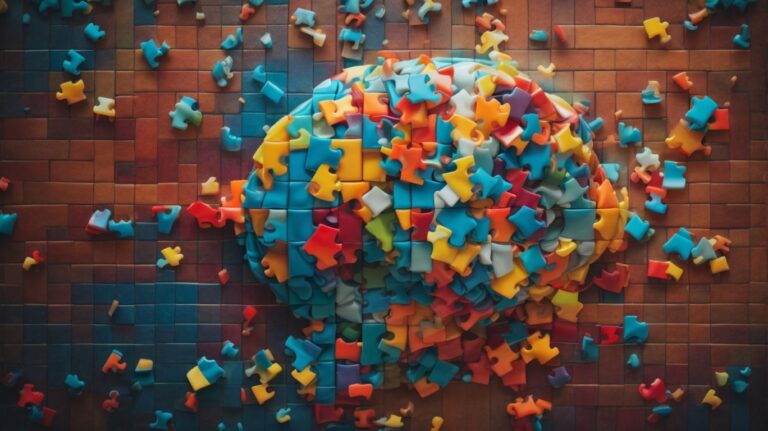Eyewitness testimony is a crucial aspect of psychology, often playing a significant role in criminal trials. But what factors can affect the accuracy of this testimony? Stress, anxiety, weapon focus, and leading questions are just a few examples.
In this article, we explore how cognitive interview techniques, minimizing distractions, and using open-ended questions can improve eyewitness testimony. Limitations such as memory reconstruction and false memories must also be considered.
Join us as we delve into the importance of eyewitness testimony in the legal system and the controversies surrounding its use.
Contents
- 1 What Is Eyewitness Testimony?
- 2 Why Is Eyewitness Testimony Important In Psychology?
- 3 What Factors Can Affect Eyewitness Testimony?
- 4 How Can Eyewitness Testimony Be Improved?
- 5 What Are the Limitations of Improving Eyewitness Testimony?
- 6 How Can Eyewitness Testimony Be Used In the Legal System?
- 7 Frequently Asked Questions
- 7.1 What is eyewitness testimony and why is it important in psychology?
- 7.2 What are some of the common challenges with eyewitness testimony?
- 7.3 How can we improve the accuracy of eyewitness testimony in psychology?
- 7.4 Can technology play a role in improving eyewitness testimony in psychology?
- 7.5 How can the use of cognitive interviewing techniques help improve eyewitness testimony?
- 7.6 What are some potential consequences of inaccurate eyewitness testimony in psychology?
What Is Eyewitness Testimony?
Eyewitness testimony refers to the account given by individuals of an event they have witnessed, often used as evidence in legal proceedings and research studies conducted in laboratory settings.
This form of testimony holds significant weight in legal contexts as it can influence jury verdicts and judicial outcomes. Within the realm of academic psychology, researchers study the reliability and accuracy of memory performance in eyewitnesses, shedding light on the intricacies of human memory processes. The field of psychological research delves into factors influencing eyewitness memory, such as stress, suggestibility, and post-event information. Understanding the nuances of eyewitness testimony plays a pivotal role in both the legal and scientific communities, shaping how information is perceived, retained, and recalled.
Why Is Eyewitness Testimony Important In Psychology?
Eyewitness testimony holds significant importance in psychology as it provides insights into memory performance, cognitive processes, and the impact of emotions on recall accuracy.
Studies have shown that our memory can be influenced by various emotional factors, such as stress levels at the time of witnessing an event or the intensity of emotions experienced during the event. This emotional modulation of memory can lead to both enhanced and impaired recall depending on the nature of the emotion involved. The reliability of eyewitness evidence is a topic of great interest, with researchers exploring how factors like perception, attention, schemas, and suggestion can impact the accuracy of eyewitness accounts.
What Factors Can Affect Eyewitness Testimony?
Various factors can influence eyewitness testimony, including emotional states, memory distortions, the nature of stimuli present during the event, and the valence and arousal levels of the information processed.
Emotional states play a crucial role in shaping how individuals recall events, with higher emotional intensity often leading to more vivid memories. Memory distortions can occur due to the reconstructive nature of memory, where details can be altered or forgotten over time. External stimuli present during the event can either enhance or detract from the accuracy of the testimony, depending on their relevance and impact on the individual’s focus and attention. Valence, which refers to the positive or negative nature of an emotion, and arousal levels, associated with the intensity of emotion, can significantly influence perception and information processing, ultimately shaping the recollection of witnessed events.
Stress and Anxiety
Stress and anxiety levels experienced during a witnessed event can impact memory reconstruction processes, leading to potential inaccuracies in eyewitness testimony.
Research has shown that heightened stress or anxiety can interfere with memory retrieval, affecting the way information is recalled and reconstructed. When an individual is under significant stress, their focus may narrow, leading to a greater likelihood of missing important details or misremembering key aspects of the event. This can result in the formation of false memories, where the individual genuinely believes in the accuracy of their recollection despite it being distorted by emotional factors.
Weapon Focus
The phenomenon of weapon focus can lead to decreased identification accuracy in eyewitness testimony, where the presence of a weapon may draw attention away from critical details of the event.
Weapon focus refers to the concept where a weapon’s presence influences an individual’s perception and memory recall during a high-stress event. Research suggests that when a weapon is involved, individuals tend to focus more on the weapon itself rather than other aspects of the situation. This heightened focus on the weapon can distort the witness’s ability to accurately remember specific details, such as the perpetrator’s appearance or actions. The psychological impact of seeing a weapon can create anxiety and fear, further impacting the witness’s ability to provide reliable information.
Leading Questions
The use of leading questions in interviews can contribute to memory decay and potential distortions in eyewitness testimony, leading to inaccurate recollections of the witnessed events.
When individuals are asked suggestive questions that contain hints or assumptions, the framing of the question can inadvertently influence the details they recall. This phenomenon is particularly prevalent in legal contexts where eyewitness accounts play a crucial role in determining the outcome of cases.
Suggestions embedded within questions can lead individuals to unintentionally fabricate details or merge multiple memories, blurring the line between reality and imagination.
Memory Decay
Memory decay over time can impact the accuracy of eyewitness testimony, with individual differences in memory performance contributing to variations in witness recollections.
Procedural memory, which is responsible for recalling how to perform certain tasks, can weaken over time, leading to potential inaccuracies in witness statements. Theoretical perspectives on memory decay suggest that the passage of time can distort or alter memories, making them less reliable for legal proceedings. Understanding the mechanisms underlying memory decay is crucial in evaluating the credibility of eyewitness accounts, especially in cases where details may be critical for justice to prevail.
How Can Eyewitness Testimony Be Improved?
Enhancing eyewitness testimony accuracy involves employing cognitive interview techniques that focus on retrieving detailed and reliable information from witnesses through open-ended questions and memory-enhancing strategies.
The effectiveness of the cognitive interview approach lies in its ability to create a comfortable and supportive context for witnesses, promoting their willingness to recount events with clarity and accuracy. This method emphasizes the importance of allowing witnesses to freely recall information without interruption, minimizing the risk of memory distortions due to leading questions or external influences.
By following a systematic and procedural framework, interviewers can guide witnesses through the retrieval process, helping them access buried memories and enhance their overall witness recall abilities. This structured approach not only aids in obtaining a more comprehensive account of the event but also ensures that the information gathered is reliable and consistent.
Use Cognitive Interview Techniques
Utilizing cognitive interview techniques can enhance witness memory performance by optimizing the retrieval of relevant details and minimizing the impact of memory distortions during investigative interviews.
Cognitive interviews are designed with the primary goal of improving witness recall accuracy and reducing the risks of memory errors. By employing a combination of strategies such as focused retrieval cues, open-ended questioning, rapport-building, and supportive techniques, interviewers can create an environment that encourages witnesses to recount events with precision.
Studies in the field of cognitive psychology have demonstrated the efficacy of these techniques in enhancing witness memory. Experts suggest that the cognitive interview approach not only aids in retrieving accurate information but also helps witnesses overcome potential memory biases and recollect events more cohesively.
Minimize Distractions During the Event
Reducing distractions during witnessed events can optimize witnesses’ information processing capabilities, leading to more accurate and reliable eyewitness testimony.
Minimizing distractions is crucial as it allows witnesses to focus their attention fully on the unfolding events, enhancing their ability to encode and store relevant data effectively.
Studies have shown that the presence of distractions can significantly impair memory consolidation and retrieval processes, leading to inaccuracies in testimonies.
By creating an environment free from irrelevant stimuli, witnesses are better positioned to capture and retain crucial details, thereby improving the overall quality and reliability of the information they provide post-event.
Use Open-ended Questions
Employing open-ended questions in interviews can improve the reliability of eyewitness testimony by allowing witnesses to provide detailed narratives without the influence of suggestive language or bias.
Research has shown that the use of open-ended questions during police interrogations leads to more accurate and comprehensive accounts of events.
By steering clear of closed-ended queries that could inadvertently suggest specific answers, investigators can ensure that witness statements are pure reflections of their memories.
This technique not only increases the chances of identifying perpetrators correctly but also minimizes the risks of false identifications in lineups, ultimately contributing to more reliable criminal investigations.
Avoid Suggestive Language
Steering clear of suggestive language when interacting with witnesses is crucial to maintaining the reliability and accuracy of eyewitness identification and recall.
Research shows that leading questions can significantly distort witness memory, resulting in misidentifications and false testimonies. Utilizing DNA evidence has helped to address inaccuracies caused by suggestive language and enhance the reliability of forensic investigations. Advancements in machine learning have provided tools to analyze witness statements objectively, reducing the influence of biased language. Police training programs emphasize the importance of neutral phrasing and open-ended questioning techniques to prevent suggestive language from contaminating witness testimony and compromising case outcomes.
What Are the Limitations of Improving Eyewitness Testimony?
Despite efforts to enhance eyewitness testimony, limitations persist in the form of memory reconstruction challenges, the potential for false memories, and individual differences in memory encoding and retrieval.
Enhancing the accuracy of eyewitness accounts is a critical aspect of legal proceedings and investigations. However, memory reconstruction presents a formidable obstacle as memories are not exact replicas of past events but instead are reconstructed during recall, making them susceptible to distortion and bias. This phenomenon raises concerns about the reliability of witness testimonies and the potential for false memories to emerge, leading to inaccurate information being presented. The impact of individual differences in memory encoding and retrieval further complicates the accuracy of eyewitness recollections.
Memory Reconstruction
The process of memory reconstruction poses a significant challenge in improving eyewitness testimony due to human memory limitations and the susceptibility to memory distortions over time.
One of the primary difficulties associated with memory reconstruction lies in the intricate process of information processing, where the human brain receives, encodes, stores, and retrieves memories. These memories are often shaped by individual perceptions, biases, and external stimuli, which can alter the accuracy of recalled events.
Cognitive biases, such as confirmation bias or suggestibility, can influence how memories are reconstructed and reported in witness testimonies. Memory distortions, including false memories or gaps in recollection, can further complicate the process, leading to inaccuracies in testimonial evidence.
False Memories
The formation of false memories presents a formidable challenge in improving eyewitness testimony reliability, as witnessed in various experimental studies that highlight the malleability of memory.
False memories, also known as distorted or fabricated memories, occur when individuals recall events or details inaccurately, often influenced by suggestive information or external cues. Suggestibility plays a critical role in the creation of these erroneous recollections, as individuals might unknowingly incorporate false information into their memories based on leading questions or external influences.
Experimental research has demonstrated how contextual factors and the introduction of misleading details can significantly alter the accuracy of memory retrieval, posing serious implications for legal proceedings and the justice system. These findings underscore the complex interplay between individual cognitive processes and external factors in shaping memory formation and recall.
Individual Differences
Understanding and accounting for individual differences in memory performance is crucial when addressing the limitations of eyewitness testimony improvements, as diverse memory encoding and retrieval strategies can impact witness recollections.
The reliability of eyewitness accounts in legal proceedings greatly depends on how effectively these individual differences are acknowledged and considered. Cognitive variability, such as differences in attention to detail or susceptibility to suggestion, can significantly influence a witness’s ability to accurately recall and report events. Emotional influences, such as stress or anxiety during the event, can further impact memory consolidation and retrieval processes, leading to potential distortions in eyewitness testimonies.
How Can Eyewitness Testimony Be Used In the Legal System?
In the legal system, eyewitness testimony plays a crucial role in establishing facts related to criminal events, although controversies surrounding its reliability and accuracy persist.
Eyewitness testimony, provided by individuals who have directly witnessed a crime or event, is often considered compelling evidence in courtrooms. The reliability of such testimony has been a subject of debate among legal scholars and practitioners. The National Academies of Sciences, Engineering, and Medicine have conducted extensive research on the accuracy of eyewitness accounts, highlighting the vulnerabilities of human memory and perception.
One of the key challenges in using eyewitness testimony is the identification of suspects in police lineups. The procedures followed in these lineups can significantly influence the witness’s ability to accurately identify the perpetrator, leading to potential miscarriages of justice.
Importance in Criminal Trials
Eyewitness testimony holds significant importance in criminal trials as it serves as crucial evidence that can impact the outcomes of legal proceedings, shedding light on the events under scrutiny.
When a witness recalls stimuli from a crime scene, their testimony can shape the credibility of the case. The valence of their statements, ranging from positive to negative, plays a pivotal role in influencing the jury’s perception of the events in question. It is essential to acknowledge that eyewitness testimony, while valuable, can also be susceptible to bias and memory distortion, leading to potential discrepancies in the presented evidence. Judges and legal professionals must navigate these complexities to ensure fair and just legal verdicts.
Controversies and Criticisms
Eyewitness testimony faces controversies and criticisms in the legal system, particularly regarding issues of identification accuracy, memory reliability, and the potential for suggestive influences on witness recollections.
Memories are known to be highly malleable, making them susceptible to distortion over time, especially when influenced by external factors or suggestions. The reliability of eyewitness accounts often comes under scrutiny due to the fallibility of human memory and the possibility of false memories being inadvertently created or reinforced. The prevalence of leading questions in legal settings can unknowingly alter witness perceptions and impact the credibility of their testimonies, leading to potential miscarriages of justice.
Frequently Asked Questions
What is eyewitness testimony and why is it important in psychology?
Eyewitness testimony is a form of evidence in which a person provides their account of an event or crime based on their own observations. It is important in psychology because it can be used to gather information and inform decisions in criminal investigations and legal proceedings.
What are some of the common challenges with eyewitness testimony?
Some common challenges with eyewitness testimony include memory distortion, false memories, and susceptibility to leading questions. These can lead to inaccurate or unreliable testimonies, which can have serious consequences in legal cases.
How can we improve the accuracy of eyewitness testimony in psychology?
There are several effective ways to improve the accuracy of eyewitness testimony in psychology, such as providing proper instructions and training for witnesses, using unbiased and open-ended questions, and minimizing distractions during the event.
Can technology play a role in improving eyewitness testimony in psychology?
Yes, technology can play a significant role in improving eyewitness testimony in psychology. For example, video recordings can be used to capture the event from multiple perspectives and reduce memory distortions. Virtual reality technology can also be used to recreate the event and help witnesses recall details more accurately.
How can the use of cognitive interviewing techniques help improve eyewitness testimony?
Cognitive interviewing techniques involve specific methods to help witnesses retrieve and recall information more accurately. This can include asking them to recreate the context of the event, use visual cues, and provide a detailed narrative. These techniques have been found to improve the accuracy and reliability of eyewitness testimony.
What are some potential consequences of inaccurate eyewitness testimony in psychology?
Inaccurate eyewitness testimony can have serious consequences, such as wrongful convictions, false accusations, and failure to identify the true perpetrator. It can also lead to a lack of justice for both the victim and the accused. Therefore, it is crucial to continually strive for effective ways to improve eyewitness testimony in psychology.



